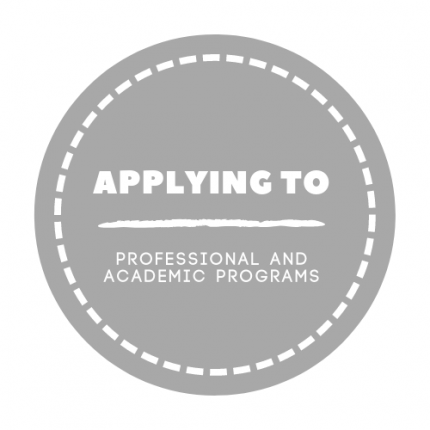Applying to Programs
Preparing to apply to graduate school should, ideally, start early. Another way of saying this is that during your undergraduate education there are things you can do every year to increase the probability of success in getting into the graduate program you desire. But plenty of people decide at the end of their undergraduate education that it was something that they valued and need to continue, and if this is you, you are not alone. It is just important to get started right away if you are hoping to apply in a few months time (or weeks!), and realize that this needs to be a priority if you are going to have any chance of success.
First, for those who have the benefit of TIME:
- Get work experience (ideally related to the field you want to enter). UBC hires lots of students every summer for Work Learn positions during the year. These are a great way to get to know faculty and gain experience conducting research. l
- Similar to Work Learn, UBC Sociology hires majors to work as Teaching Assistants during their last year of school. This can help you get a sense of the kind of work you will do in grad school, as well as get to know a faculty member (who might just end up being able to write you a strong letter and give you advice!). These applications are usually due by July 1st for the following year.
- Participate in UBC programs like Co-Op or Internships. These programs provide valuable training!
- Volunteer (or get hired!) to work on a research project. UBC Sociology students can submit an application here, and should watch the Engage Sociology newsletter for opportunities.
- Become involved with the department by joining the Sociology Student Association (or your own undergraduate student society).
- In September graduate students in Sociology coordinate a peer mentoring program for Sociology students who are interested in getting help on applying to graduate school. Watch for the email and sign up!
- Go to office hours, take an community-based experiential learning course, do an independent study with a prof, run a student directed seminar, or do an honours project — at every stage of your education you can find ways to engage more and learn more.
- Build an eportfolio to showcase your learning and demonstrate to others how your education transformed you.
- Look for and apply for funding.
- You are welcome to come to the workshop at any point — you don’t have to be actually applying to programs at the time.
- Investigate whether the programs you are interested in require entrance exams like the LSAT or GRE. If so, spend time preparing. If not, rejoice.
And for students who are graduating soon and want to apply ASAP:
- Look over the list above and do things that seem reasonable.
- Take stock of what you have accomplished. Finishing your degree is a huge accomplishment. Consider producing an eportfolio as a way of documenting your learning. Assess your assets. What are your strengths? Who have you worked closely with? What can you leverage? Go and talk to a professor you are comfortable with and ask them to help you identify what gaps you have and how you can strategically work to minimize these gaps.
- Realize that you do not have to go to graduate school right away — it is okay to take a year off and do something else. Especially if that thing is going to help you. For instance, working at a company for a year analyzing data is great training for a PhD program. Working at a health centre is a great way to prepare for a public health program, and working at a camp or in a school is great preparation for a teacher training program.
- Realize that the less prepared you are, the more programs you should probably apply to since you won’t have the time to develop strong connections with faculty at programs you are applying to.
- Read through this site, and others, and get yourself organized. And come to the monthly workshop!

